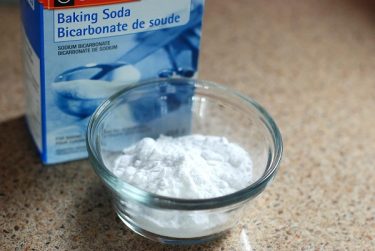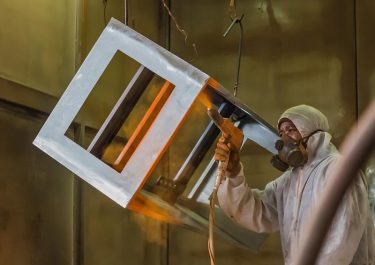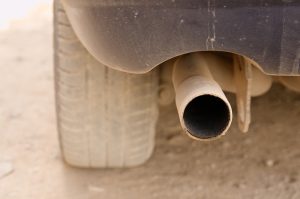Cleaning our air comes about by everyone pitching in and doing their part, from individuals making daily choices around using scented products and chemicals, creating emissions of all sorts, etc. to policymakers making decent air quality, a human right, a priority over big business and polluters.
 In choosing to create clean, safe air for all, if you haven’t already switched, why wait for gas-powered leaf-blowers and mowers to be banned in every B.C. community and just switch to electric-powered equipment on as many levels as you can now? The same goes for any products and services that negatively impact air quality and the health of individuals, communities, and the planet. Going scent-free, carpooling, taking public transit, growing indoor plants, growing outdoor and edible plants and trees, and participating in community gardens, or in tree-planting projects are all great ways to reduce ecological footprints and give back. There are so many little ways to stop being part of the problem and start being part of the solution, and it is the caring effort of individuals and grass-roots level groups who are making green choices and living a more conscious lifestyle, that is making a difference as far as attaining decent air quality on many levels. We thank you for every baby step taken toward good air quality!
In choosing to create clean, safe air for all, if you haven’t already switched, why wait for gas-powered leaf-blowers and mowers to be banned in every B.C. community and just switch to electric-powered equipment on as many levels as you can now? The same goes for any products and services that negatively impact air quality and the health of individuals, communities, and the planet. Going scent-free, carpooling, taking public transit, growing indoor plants, growing outdoor and edible plants and trees, and participating in community gardens, or in tree-planting projects are all great ways to reduce ecological footprints and give back. There are so many little ways to stop being part of the problem and start being part of the solution, and it is the caring effort of individuals and grass-roots level groups who are making green choices and living a more conscious lifestyle, that is making a difference as far as attaining decent air quality on many levels. We thank you for every baby step taken toward good air quality!
 Toxic VOC’s (Volatile Organic Compounds) and other chemicals abound in the many scents people wear including scented body washes, shampoos, conditioners, laundry detergents, dryer sheets, deodourants, creams, hairsprays, etc. Then there are cleaning supplies with scents to cover up their horrible smell, dishwashing detergents, scented candles, air fresheners, and so much more. One choice made by you could throw someone into a state of instant headache, and feeling an attack on their nervous system. So choose wisely and considerately when deciding about deliberately using scented products for laundry and to smell nice, especially if you are using public conveyances and are going to be in close quarters with others. Decent air quality is a human right and those who wear scents are actually denying others their right to chemical-free air. As poor air quality in the home and workplace can have an array of detrimental effects on people, and so many people are chemical sensitive these days, (that and/or just unwilling to tolerate those polluting their airspace), ensuring air free of fragrance and toxic odours is becoming a requirement in more and more workplaces around the world.
Toxic VOC’s (Volatile Organic Compounds) and other chemicals abound in the many scents people wear including scented body washes, shampoos, conditioners, laundry detergents, dryer sheets, deodourants, creams, hairsprays, etc. Then there are cleaning supplies with scents to cover up their horrible smell, dishwashing detergents, scented candles, air fresheners, and so much more. One choice made by you could throw someone into a state of instant headache, and feeling an attack on their nervous system. So choose wisely and considerately when deciding about deliberately using scented products for laundry and to smell nice, especially if you are using public conveyances and are going to be in close quarters with others. Decent air quality is a human right and those who wear scents are actually denying others their right to chemical-free air. As poor air quality in the home and workplace can have an array of detrimental effects on people, and so many people are chemical sensitive these days, (that and/or just unwilling to tolerate those polluting their airspace), ensuring air free of fragrance and toxic odours is becoming a requirement in more and more workplaces around the world.
See the article by Collective Evolution: Fragrances and perfumes are being labeled as the new secondhand smoke, as well as NLM: Scented Products Emit a Bouquet of VOCs
 A great way to help indoor air quality is by having plants that help purify the air by filtering out common volatile organic compounds. Plants that do this for us include Christmas Cactus, Areca Palm, Orchid, Tulsi, Ficus Benjamina, Heartleaf Philodendron, Chinese Evergreen, and Bamboo Plant. Plants that remove toxins and are also good at producing oxygen include Snake Plant, Peace Lily, Weeping Fig, Pothos, Spider Plant, Aloe Vera, and more. Get the visuals on these plants on Gardeningsoul: Visual list of houseplants that purify the air and help rid the air of toxins. Plants are also natural humidifiers, and many can freshen a room and create a pleasant, fresh aroma and positive atmosphere. Having plants around can also lower one’s stress levels, enhance sleep, and boost energy and productivity. Nurturing plants is good for the soul! If you want to keep mosquitos away, you can turn plants such as Lemongrass, Rosemary, Garlic, Marigolds, Catnip, Basil, Lemon balm, Lemon Thyme, and Lavender.
A great way to help indoor air quality is by having plants that help purify the air by filtering out common volatile organic compounds. Plants that do this for us include Christmas Cactus, Areca Palm, Orchid, Tulsi, Ficus Benjamina, Heartleaf Philodendron, Chinese Evergreen, and Bamboo Plant. Plants that remove toxins and are also good at producing oxygen include Snake Plant, Peace Lily, Weeping Fig, Pothos, Spider Plant, Aloe Vera, and more. Get the visuals on these plants on Gardeningsoul: Visual list of houseplants that purify the air and help rid the air of toxins. Plants are also natural humidifiers, and many can freshen a room and create a pleasant, fresh aroma and positive atmosphere. Having plants around can also lower one’s stress levels, enhance sleep, and boost energy and productivity. Nurturing plants is good for the soul! If you want to keep mosquitos away, you can turn plants such as Lemongrass, Rosemary, Garlic, Marigolds, Catnip, Basil, Lemon balm, Lemon Thyme, and Lavender.
Cleaning is a number one priority when it comes to air quality in the home to keep mould at bay. You can react to the many molds hiding in corners, basements, under sinks, air ducts, window ledges, etc. Toxins and molds can manifest as feeling tired all the time, headaches, light-headedness, flu-like symptoms, nasal irritation, burning and congestion, cough, wheezing, chest tightness, and shortness of breath as well as experiencing difficulty with focus, concentration, and sleep, mental fatigue, and irritability. Tea tree oil is a good way to deal with keep mould, as is vinegar and baking soda.
 The toxic residue and fumes from cleaning solutions and other chemicals found in many homes and workplaces create often unnecessary health challenges when there are so many alternatives. Vinegar and baking soda are a good combination for more than just mould, and can often be substituted for commercial cleaners, and is much more welcome around food preparation areas than chemicals cleaners. Washing items in extremely hot water and exposing them to ultraviolet rays on outdoor clotheslines helps ensure that dust mites don’t survive the wash.
The toxic residue and fumes from cleaning solutions and other chemicals found in many homes and workplaces create often unnecessary health challenges when there are so many alternatives. Vinegar and baking soda are a good combination for more than just mould, and can often be substituted for commercial cleaners, and is much more welcome around food preparation areas than chemicals cleaners. Washing items in extremely hot water and exposing them to ultraviolet rays on outdoor clotheslines helps ensure that dust mites don’t survive the wash.
When it comes to cleaning our air, there are so many aspects of Air Pollution to review. It is overwhelming when you look at Individual Pollution, and emissions from homes, workplaces, and transportation.
New equipment and technologies are making it so much easier to reduce our carbon footprint in many different areas. We just have to keep a mindset that seeks to improve indoor and outdoor air quality for all. Our pages on Solar Energy and Green Building have lots of ways to inspire you to reduce your footprint as far as poor air quality and more.

Return to Now: Vinegar Kills Germs Just as Well or Better than Top 6 Commercial Cleaners
Healthy Holistic Living: 72 Uses for Simple Household Products to Save Money & Avoid Toxins
Dr. Bronner’s Soaps – Good alternative to toxic soaps and shampoos
Sciencing: Scented Cleaning Products are seen as the new smoking
Consumer Notice: Indoor Air Quality

Science: Indoor Air Pollution: A Public Health Perspective
AQICN: Canada’s Air Pollution ~ Real-time Air Quality Index Visual Map
Wikipedia: Air Pollution in British Columbia
BC Air Quality: Ozone Pollution
BC Air Quality – 101 – Pollution – Climate Causes

How To Improve Indoor Air Quality (And Why It’s Critical) with Mike Feldstein
EcoWatch: Environmental Toxins 101: Everything You Need to Know
The American Lung Association: Cleaning Supplies and Household Items
Asbestos.com – Environmental Effects
Wikipedia: Sustainable Products

Environment Canada’s Air Information:
- Air Quality Health Index
- Air Quality Monitoring and Data
- Air Quality Science
- General
- Fuel, Oil, and Gas
- Industrial and Vehicle Emissions

BC Air Quality – Vehicle Emissions Impacts
Inceptive Mind: Aquarius Engines’ new single-piston-linear-engine running completely on hydrogen

Explain that Stuff – Air Pollution- An introduction

NRCAN: Sustainable forest management in Canada
Canadian Forests: Directory of NGOs Working in the Forest Sector in Canada
Environment and Climate Change Canada
Science World: Old Growth Trees

Vancouver’s Urban Forest Strategy
BC Government Sponsored Trees Program
Alex Praglowski Aviation: Air Canada orders fleet of Electric Planes
International Resources
EPA: Greenhouse Gas Emissions from a Typical Passenger Vehicle
World’s Air Pollution: Real-time Air Quality Index
The United States EPA: Cleaning Up Our Land, Water, and Air


